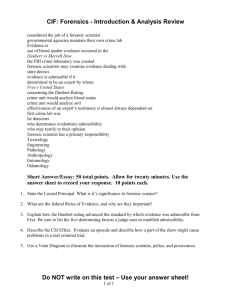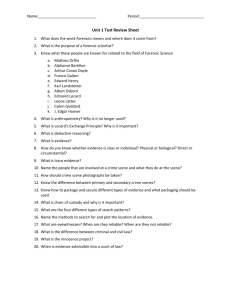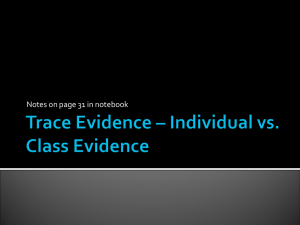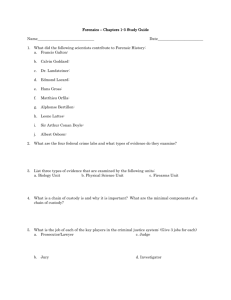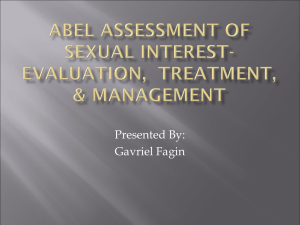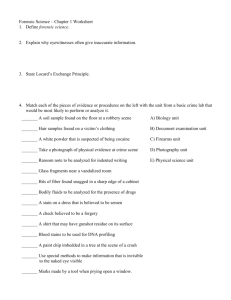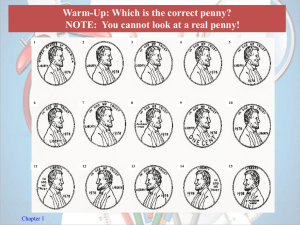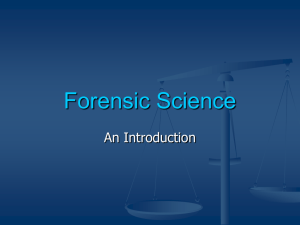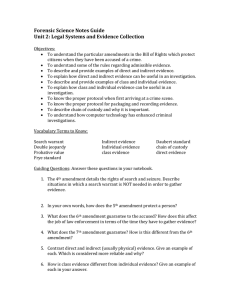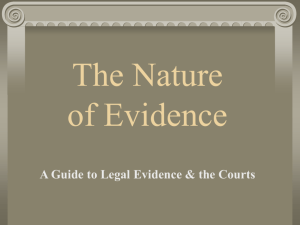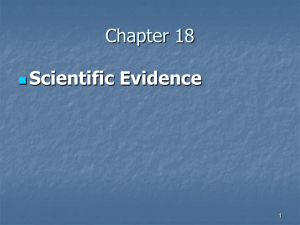Forensics Review Sheet Define the terms: Statutory Hearsay
advertisement
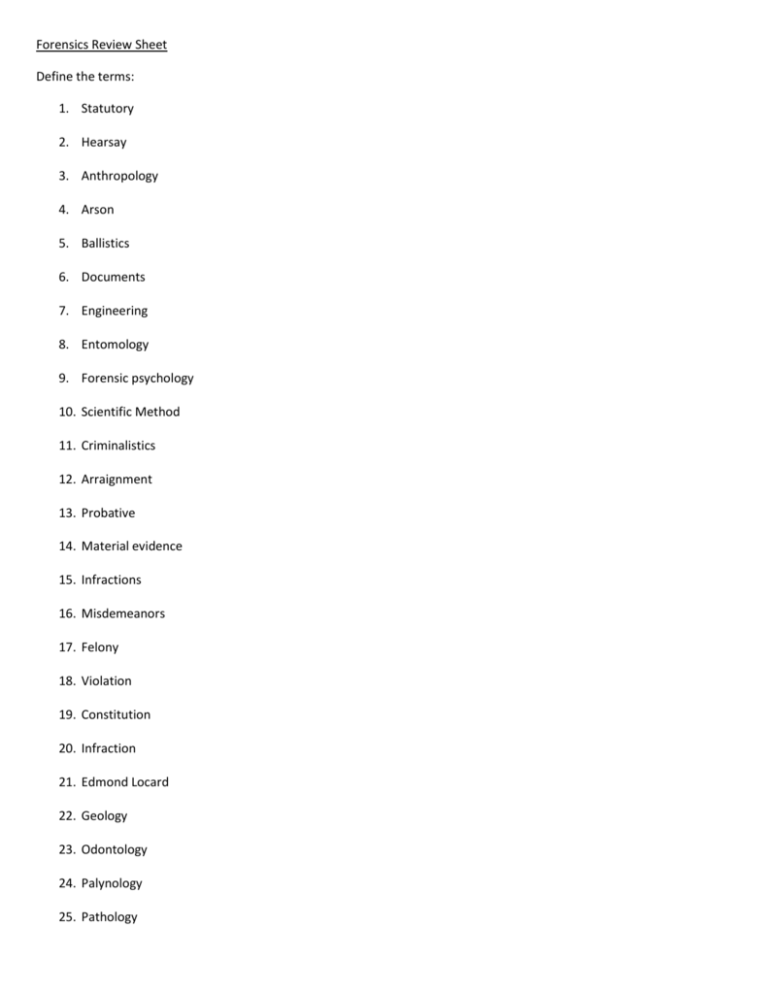
Forensics Review Sheet Define the terms: 1. Statutory 2. Hearsay 3. Anthropology 4. Arson 5. Ballistics 6. Documents 7. Engineering 8. Entomology 9. Forensic psychology 10. Scientific Method 11. Criminalistics 12. Arraignment 13. Probative 14. Material evidence 15. Infractions 16. Misdemeanors 17. Felony 18. Violation 19. Constitution 20. Infraction 21. Edmond Locard 22. Geology 23. Odontology 24. Palynology 25. Pathology 26. Polygraph 27. Toolmarks 28. Serology 29. Toxicology 30. Evidence 31. Daubert Ruling 32. Stare decisis 33. Criminology 34. Expert testimony dependent on: 35. FBI crime lab created in what time frame: 36. What evidence does forensic scientists deal with: 37. What happens during a preliminary hearing: 38. Plea bargain 39. Jobs of a forensic scientist 40. Blood spatter evidence timeline 41. What crime unit analyzes blood stains: soil: 42. The Fourth Amendment: 43. Examples of what’s not admissible in court: 44. What are the 7 types of laws in the US: 45. Define the federal Rules of Evidence and why they’re important 46. What’s the Locard Principle and why is it significant: 47. How did the Daubert ruling grow from Frye: 48. In criminal law, what are the possible rulings: 49. DNA being used in what time frame: 50. Is junk science ever allowed? 51. Grand jury determines: 52. First crime lab timeline: 53. Who determines if someone is an expert: 54. What’s included under Administrative Law: 55. Who established the fingerprint system in the US: 56. Criminal law also known as: 57. What makes evidence admissible 58. Fifth amendment 59. Civil law violations punishments 60. Daubert vs Merrell time frame 61. Miranda Rights 62. What agencies have their own crime labs 63. Frye
